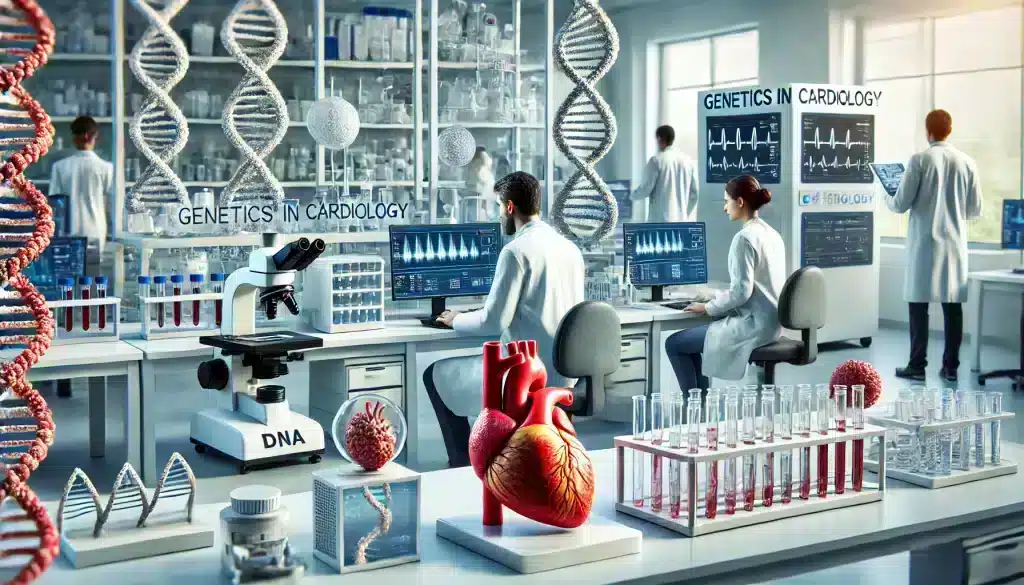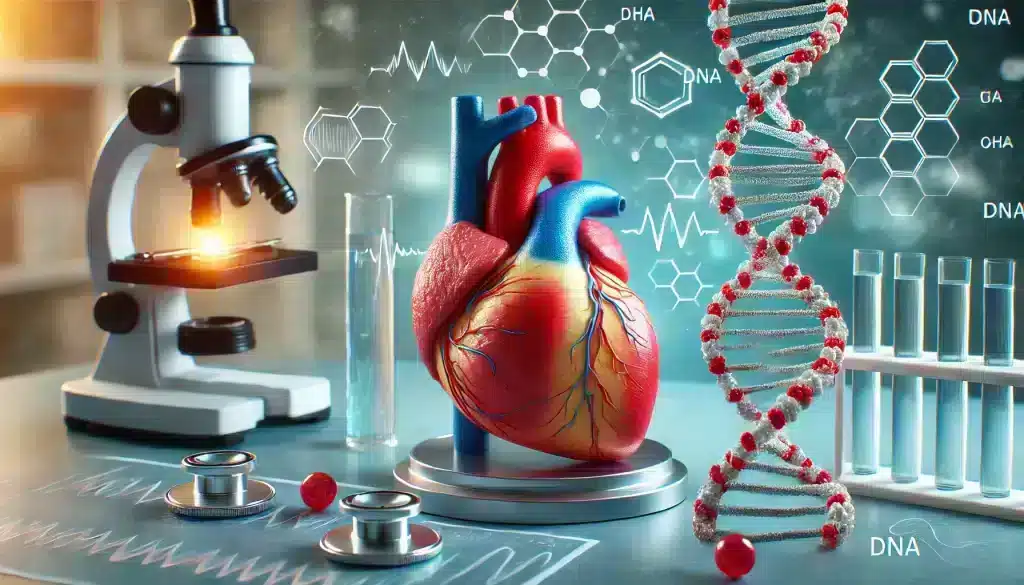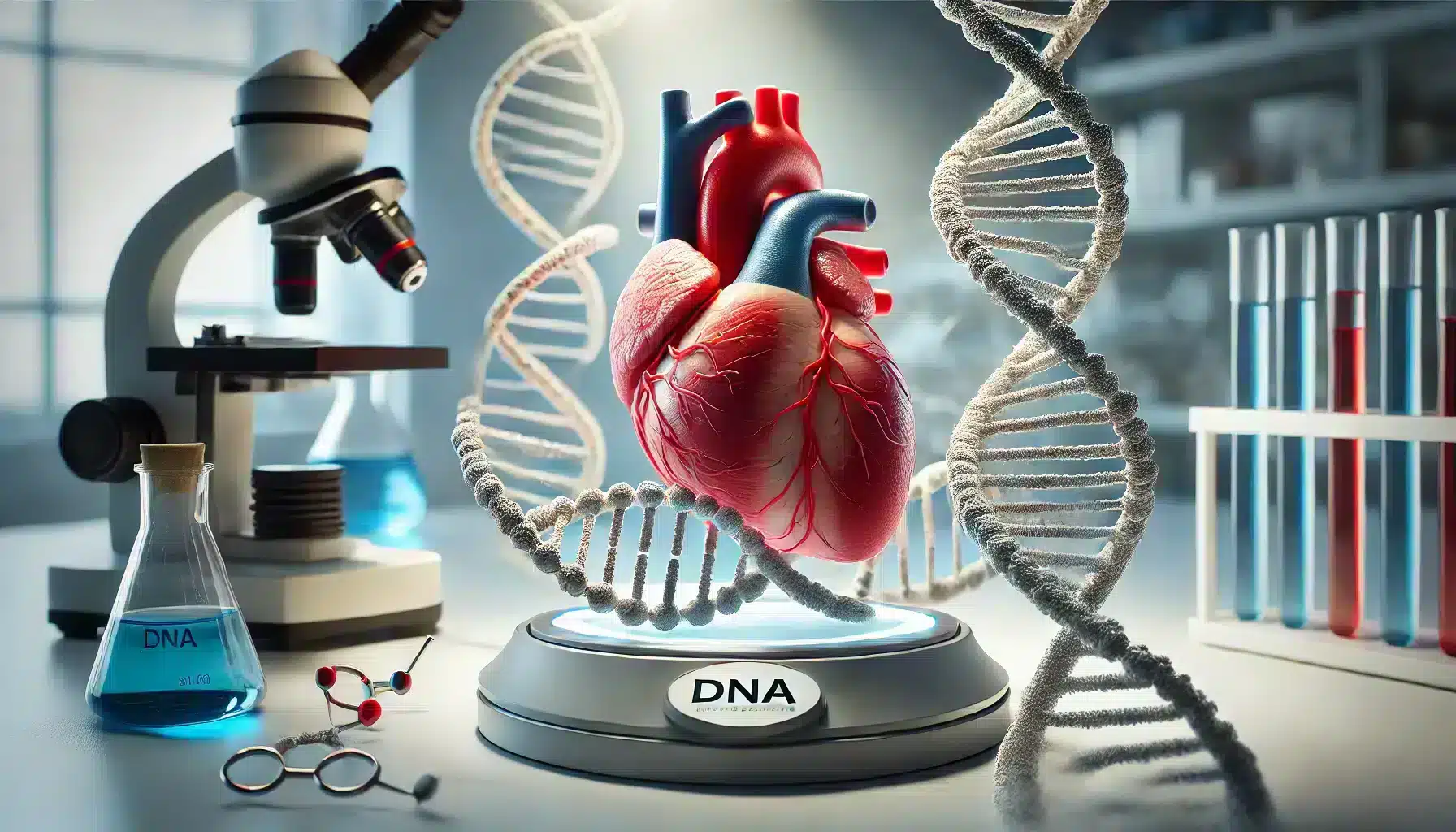Introduction: The Growing Importance of Genetics in Cardiology
Over the past few decades, advancements in genetic research have significantly shaped the field of cardiology. Understanding the genetic components that influence heart health has become a critical factor in diagnosing, treating, and preventing cardiovascular diseases. Researchers are uncovering the complex relationships between genes and heart conditions, which are helping to pave the way for more personalized and effective treatments.

The role of genetics in cardiology is no longer limited to understanding hereditary heart conditions. Recent research has expanded into identifying genetic markers that may predispose individuals to heart disease, providing insights that were previously unattainable. With breakthroughs in technology such as gene sequencing and CRISPR, the future of cardiology is being redefined by the potential to prevent heart diseases before they manifest.
Genetic Factors Influencing Heart Disease
Genetic factors play a crucial role in the development of many heart diseases, both inherited and acquired. The study of genetics in cardiology helps researchers and clinicians understand why some individuals are more prone to heart conditions than others. In many cases, mutations in specific genes can lead to structural abnormalities in the heart or affect the way the cardiovascular system functions.

Researchers have identified several key genetic components that contribute to heart disease, including hereditary cardiomyopathies and genetic markers that indicate an elevated risk of developing cardiovascular conditions. Understanding these factors allows for earlier diagnosis and intervention, improving the outcomes for patients with genetic predispositions to heart disease.
Hereditary Cardiomyopathies
Hereditary cardiomyopathies, such as hypertrophic cardiomyopathy (HCM) and dilated cardiomyopathy (DCM), are caused by mutations in specific genes that affect the structure and function of the heart muscle. These conditions are often passed down through families and can lead to severe complications, including heart failure, arrhythmias, and sudden cardiac death.
Genetic testing has become a valuable tool in identifying individuals who carry these mutations, even if they do not yet exhibit symptoms. This enables proactive management of the condition, such as lifestyle modifications, medications, or even preventive surgeries to reduce the risk of life-threatening events.
Genetic Markers for Cardiovascular Risk
In addition to hereditary conditions, certain genetic markers have been linked to an increased risk of developing cardiovascular diseases, including coronary artery disease (CAD) and stroke. These markers can be used to predict an individual’s susceptibility to these conditions, allowing for more personalized preventive measures.
For example, mutations in the PCSK9 gene have been associated with higher levels of LDL cholesterol, a major risk factor for heart disease. Understanding these genetic risks enables doctors to tailor treatment plans to reduce the likelihood of heart disease developing or worsening over time.
Recent Advances in Genetic Research in Cardiology
Recent years have seen remarkable progress in the field of genetic research within cardiology. These advancements are not only deepening our understanding of heart diseases but also providing new avenues for treatment and prevention. From the use of gene therapy to the groundbreaking applications of CRISPR, the potential for genetic research to revolutionize cardiology is immense.

Genetic advancements in cardiology are transforming the way heart conditions are approached, focusing on root causes at the molecular level rather than simply treating symptoms. Researchers are actively exploring how genetic modifications and therapies can repair or replace defective genes, leading to novel treatments that were once unimaginable.
Gene Therapy and Its Applications
Gene therapy has emerged as a promising tool in the treatment of various cardiovascular conditions. This technique involves introducing, removing, or altering genetic material within a patient’s cells to treat or prevent disease. In cardiology, gene therapy has been explored for conditions like familial hypercholesterolemia, a genetic disorder that causes extremely high cholesterol levels, leading to early heart attacks.
By targeting the underlying genetic cause, gene therapy offers the potential for long-lasting effects, and researchers are hopeful that it can provide cures for conditions that currently have limited treatment options. Although gene therapy is still in its early stages for cardiology, clinical trials have shown promising results, particularly in reducing cholesterol levels and preventing arterial blockages.
CRISPR and Genetic Editing
CRISPR (Clustered Regularly Interspaced Short Palindromic Repeats) technology has revolutionized the field of genetic editing. This tool allows scientists to precisely target and modify specific genes, offering unprecedented control over the genetic makeup of organisms. In cardiology, CRISPR has the potential to correct genetic mutations that lead to heart diseases, offering hope for permanent cures.
CRISPR’s application in cardiology has primarily focused on conditions caused by single-gene mutations, such as hypertrophic cardiomyopathy. The ability to repair these mutations at the DNA level means that patients may no longer need to rely solely on medications or invasive surgeries to manage their conditions. As research continues, CRISPR is expected to play a major role in the future of cardiovascular medicine.
How Genetics is Shaping Personalized Cardiac Treatments
The integration of genetic research into cardiology is paving the way for personalized cardiac treatments, also known as precision medicine. By understanding the unique genetic makeup of each individual, doctors can tailor treatments to target specific causes of heart disease, rather than adopting a one-size-fits-all approach. This shift toward personalized care is offering new hope for patients with complex or hard-to-treat heart conditions.

Genetics is playing a crucial role in identifying how different patients may respond to certain medications, enabling more effective treatment plans. Furthermore, the ability to predict the likelihood of a patient developing heart disease based on their genetic profile is opening new possibilities for preventive care and early intervention.
Precision Medicine for Heart Conditions
Precision medicine, guided by genetic information, is becoming an essential tool in the management of heart disease. For example, patients with familial hypercholesterolemia, who have inherited high cholesterol levels, may benefit from specific medications that target the genetic pathways responsible for their condition. Similarly, individuals with certain genetic markers for atrial fibrillation can receive treatments tailored to prevent arrhythmias before they occur.
This approach not only improves the effectiveness of treatments but also minimizes the risk of side effects, as doctors can select therapies that are most compatible with the patient’s genetic profile. As more is learned about the genetics of heart disease, precision medicine is expected to become the standard of care for many cardiovascular conditions.
Challenges and Ethical Considerations
While the potential of genetics to transform cardiology is immense, there are several challenges and ethical considerations that must be addressed. One major challenge is the cost of genetic testing and gene-based therapies, which may not be accessible to all patients. Additionally, there are concerns about privacy and the use of genetic information, particularly in relation to insurance and employment.
Ethical considerations also arise in the context of genetic editing. While technologies like CRISPR offer promising cures for genetic heart conditions, there are debates about the long-term consequences of altering human genes and the potential for unintended effects. These concerns underscore the need for careful regulation and oversight as genetic technologies continue to evolve in the field of cardiology.
The Future of Genetic Research in Cardiology
As genetic research continues to advance, the future of cardiology is poised to undergo even more transformative changes. Emerging technologies, such as advanced gene editing tools, artificial intelligence, and big data analytics, are set to revolutionize how heart diseases are understood, diagnosed, and treated. The integration of these cutting-edge technologies with genetics holds the promise of more accurate, efficient, and personalized approaches to heart health.

Looking ahead, researchers anticipate that genetic testing will become a routine part of cardiovascular care. This will allow clinicians to better predict which patients are at risk of developing heart diseases, enabling earlier interventions and preventive measures. Moreover, new therapies based on genetic insights are likely to offer more effective treatments, with fewer side effects, for patients with inherited heart conditions.
Emerging Trends and Technologies
Several emerging trends are expected to shape the future of genetic research in cardiology. For example, the development of next-generation sequencing technologies is making it easier and more affordable to analyze patients’ genomes. This could lead to the identification of new genetic mutations associated with heart disease, expanding the scope of genetic testing in cardiology.
Additionally, artificial intelligence (AI) and machine learning are being used to analyze vast amounts of genetic data, uncovering patterns that were previously hidden. These technologies have the potential to accelerate the discovery of new genetic markers and therapeutic targets, paving the way for more targeted and effective treatments for cardiovascular diseases.
Integrating Genetics into Everyday Cardiology Practices
As genetic testing becomes more widespread, integrating genetic insights into everyday cardiology practices will be essential. This includes training clinicians to interpret genetic data and incorporate it into treatment plans. Hospitals and healthcare providers will need to invest in the infrastructure and expertise required to support genetic testing and the use of gene-based therapies.
Moreover, genetic research is expected to play a key role in preventive cardiology. By identifying individuals at high genetic risk for heart disease, doctors can implement early interventions, such as lifestyle modifications and targeted medications, to reduce the likelihood of developing serious conditions later in life. The integration of genetics into standard cardiology care will ultimately lead to more personalized and effective treatments for heart disease.
Conclusion: The Way Forward
The role of genetics in cardiology research is continuously expanding, offering new insights into the causes of heart disease and providing pathways for innovative treatments. As technology advances, genetic research is expected to play an even greater role in shaping personalized medicine, enabling doctors to tailor treatments to the specific genetic profiles of their patients. From gene therapy to precision medicine, the future of cardiology will likely be marked by these groundbreaking developments.
However, as with any emerging field, there are challenges to address. Ethical considerations, accessibility, and the need for continued research will be important factors in determining how widely genetic-based treatments can be adopted. Despite these challenges, the potential benefits are enormous, offering hope to millions of people affected by genetic heart conditions. As we look to the future, it is clear that genetics will continue to transform the field of cardiology, leading to better outcomes and more personalized care for heart disease patients worldwide.
Frequently Asked Questions (FAQ)
What role does genetics play in cardiology research?
Genetics helps researchers understand the hereditary and molecular basis of heart diseases, which leads to more targeted diagnosis and personalized treatments.
How is genetic research improving treatments for heart disease?
Genetic research enables the development of precision medicine, where treatments are tailored based on an individual’s genetic profile, leading to more effective and personalized care.
What are some of the challenges associated with genetic research in cardiology?
Challenges include the high cost of genetic testing, ethical concerns surrounding genetic modifications, and the need for broader accessibility to gene-based therapies.
What is CRISPR, and how is it used in cardiology?
CRISPR is a gene-editing tool that allows scientists to modify DNA sequences with precision. In cardiology, CRISPR is used to correct genetic mutations that cause heart diseases.
How will genetic research shape the future of cardiology?
Genetic research will continue to transform cardiology by enabling earlier diagnosis, more personalized treatments, and the potential for curing genetic heart conditions through advanced therapies like gene editing.


